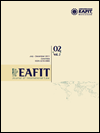Statelessness and human rights: the role of the United Nations High Commissioner for Refugees (UNHCR)
Main Article Content
Keywords
Statelessness, UNHCR, right to a nationality, Human Rights
Abstract
Statelessness, the condition of not being a national from any State, is one of the most serious but unknown violations of Human Rights, and that is the reason why the United Nations have been increasingly motivated to deal with this problem. The most important instruments of international law related to the statelessness issue are the 1954 Convention relating to the Status of Stateless Persons and the 1961 Convention on the Reduction of Statelessness. Even though these Conventions do not impose excessive obligations to the States, they have been ratified by only a few States: 66 the former and 38 the latter. However, in the past decades there has been a very important action of the United Nations High Commissioner for Refugees (UNHCR) –the competent authority in the matter within the UN System– related to statelessness. The work of the UNHCRtowards stateless people has the following key areas: identification, prevention, reduction and protection. With the support of the UNHCR, some States like Sri Lanka (former Ceylon), Estonia and Latviahave been able to successfully reduce the cases of statelessness and in this way they have improved the Human Rights situation in these countries.
Downloads
Download data is not yet available.

